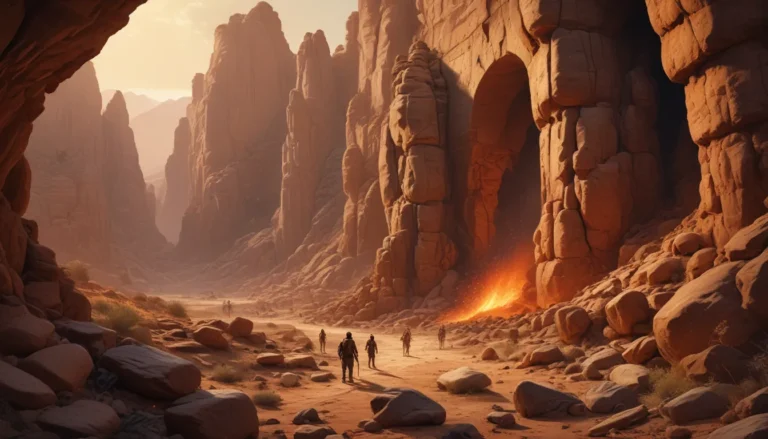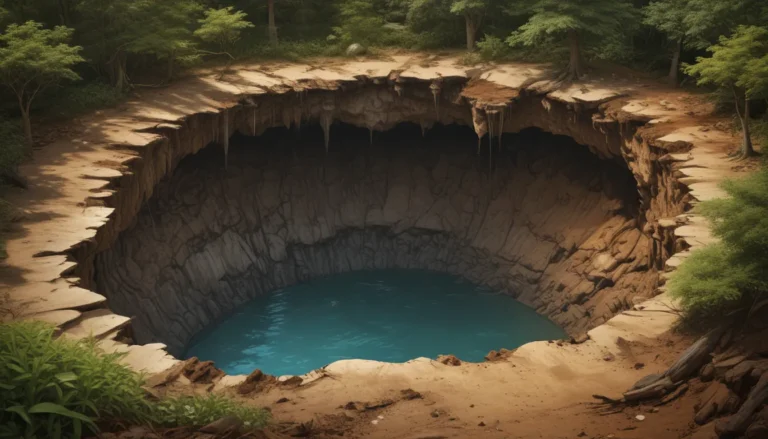A Note About Images: The images used in our articles are for illustration purposes only and may not exactly match the content. They are meant to engage readers, but the text should be relied upon for accurate information.
In a world powered by ancient sources of energy, fossil fuels stand as the pillars of our civilization’s progress. Coal, oil, and natural gas have fueled our industries, transportation systems, and economies for centuries, shaping the world as we know it today. As we unravel the mysteries of these non-renewable resources, we uncover astounding facts that shed light on their significance, challenges, and alternatives. Join us on a captivating exploration of eight remarkable facts about fossil fuels that will deepen your understanding of their role in our lives and the planet’s future.
The Origin Story of Fossil Fuels
- Fossil fuels such as coal, oil, and natural gas are the result of hundreds of millions of years of geologic processes.
- They are formed from the remains of prehistoric plants and animals that were buried and subjected to intense heat and pressure over time.
The Finite Nature of Fossil Fuels
- Unlike renewable energy sources like solar or wind, fossil fuels are finite and cannot be replenished at the same rate they are consumed.
- The extraction and consumption of fossil fuels are depleting these resources, raising concerns about their future availability.
The Environmental Impact of Fossil Fuels
- Burning fossil fuels releases harmful gases such as carbon dioxide (CO2) into the atmosphere, contributing to global warming and climate change.
- Mining and extraction operations can lead to habitat destruction, water pollution, and adverse effects on ecosystems and biodiversity.
The Transformative Power of Fossil Fuels
- Fossil fuels have revolutionized industrialization and transportation, fueling unprecedented economic growth and technological advancements.
- They have powered factories, facilitated transportation, and become the backbone of modern infrastructure, shaping the world we live in today.
The Dominance of Fossil Fuels in Global Energy Consumption
- Despite the rise of renewable energy sources, fossil fuels remain the dominant source of global energy, accounting for the majority of energy consumption.
- The demand for fossil fuels continues to grow, particularly in developing countries where access to energy is vital for economic progress.
The Pollution Problem of Fossil Fuels
- In addition to carbon dioxide, the combustion of fossil fuels produces harmful air pollutants like sulfur dioxide, nitrogen oxides, and particulate matter.
- These pollutants have detrimental effects on air quality, human health, and the environment, posing significant challenges to sustainability.
The Quest for Clean Energy Alternatives
- Given the environmental concerns associated with fossil fuels, there is a global push to find cleaner and more sustainable alternatives.
- Renewable energy sources like solar, wind, and hydroelectric power offer promising solutions to reduce our dependence on fossil fuels and mitigate climate change.
Embracing a Sustainable Future
In conclusion, while fossil fuels have been instrumental in shaping our modern world, their environmental impact cannot be ignored. Transitioning to cleaner and more sustainable energy sources is essential as we face the challenges of a changing climate. By embracing renewable energy technologies and reducing our reliance on fossil fuels, we can pave the way for a brighter and more sustainable future for generations to come.
Frequently Asked Questions About Fossil Fuels:
Q: What are fossil fuels?
A: Fossil fuels are natural resources such as coal, oil, and natural gas formed from ancient plants and organisms over millions of years.
Q: How do fossil fuels create energy?
A: Fossil fuels are burned, releasing heat energy used to generate electricity or power engines for transportation and industrial processes.
Q: Are fossil fuels renewable or non-renewable?
A: Fossil fuels are non-renewable resources consumed faster than they can be replenished, making them finite and unsustainable in the long run.
Q: What are the environmental impacts of fossil fuels?
A: Burning fossil fuels releases carbon dioxide and other pollutants, contributing to climate change, air pollution, habitat destruction, and health concerns.
Q: Can we replace fossil fuels with renewable energy?
A: Yes, transitioning to renewable energy sources is crucial for reducing our dependency on fossil fuels and mitigating the negative impacts of climate change.
Q: What are some alternatives to fossil fuels?
A: Alternatives to fossil fuels include solar energy, wind power, hydroelectricity, biofuels, and geothermal energy, offering cleaner and more sustainable options.
Q: Are fossil fuels cheaper than renewable energy sources?
A: Historically, fossil fuels have been cheaper, but the cost of renewable energy technologies has decreased, making them more competitive and cost-effective alternatives.
Q: How can individuals reduce fossil fuel consumption?
A: Individuals can reduce fossil fuel consumption by adopting energy-efficient practices, using public transportation, carpooling, cycling, walking, and supporting renewable energy initiatives.
Begin your Exploration of Fossil Fuels
As we delve into the depths of fossil fuels, we uncover a world of wonders waiting to be explored. From their ancient origins to their modern-day impact, the journey into the heart of energy is both enlightening and inspiring. Join us as we uncover the truth about fossil fuels and embark on a path towards a more sustainable future. Your curiosity has the power to shape the world.






